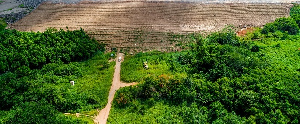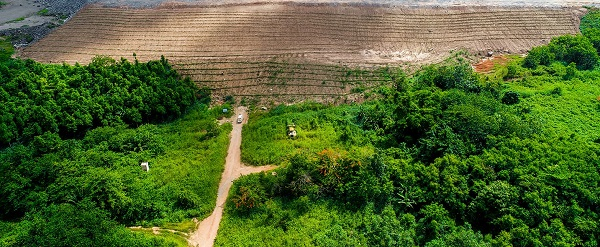 Ghana is intensifying efforts to monitor and conserve its biodiversity resource
Ghana is intensifying efforts to monitor and conserve its biodiversity resource
Ghana is intensifying efforts to monitor and conserve its biodiversity resource as part of commitments to global environmental goals, including the Convention on Biological Diversity (CBD) and the Kunming-Montreal Global Biodiversity Framework.
Through pockets of existing projects data and the Future of Biodiversity Monitoring and Mapping in Ghana, a new initiative, has commenced to identify gaps and opportunities to build robust framework to better protect nature as well as aid decision making.
Dr Peter Dery, the Director of Environment at the Environment, Science and Technology opened a national stakeholders’ workshop on biodiversity monitoring and mapping, said natural resources were vital to the nation’s economy, cultural identity, and ecological resilience.
The workshop will identify further prioritisation of these opportunities for development into research project proposal (by project partners) potentially incorporating some or all of the following; green financing, novel technologies, building capacity and digital infrastructure in this region
The Project Organising Partners include UNESCO, Development Bank Ghana (DBG), Ghana Environment Protection Authority (EPA) and UK Centre for Ecology & Hydrology (UK and West Africa offices).
In a speech delivered on his behalf Dr Ibrahim Murtala Muhammed, the Minister of Environment, Science and Technology said natural resources were vital to the nation’s economy, cultural identity, and ecological resilience.
Dr Muhammed said Ghana was one of Africa’s biodiversity hotspots, with diverse ecosystems across forests, wetlands, savannahs, and coastal zones.
He said the initiative was in line with the country’s vision to integrate biodiversity into national development planning, provide evidence/science-based decision-making and build capacity for sustained biodiversity monitoring.
The Minister noted it was a priority to update and implement Ghana’s National Biodiversity Strategy and Action Plan (NBSAP) in line with the Global Biodiversity Framework (GBF)
Government, the Minister added, hoped to finalise the National Biodiversity Plan and establish a formal legal framework for biodiversity conservation and sustainable use.
Mr Edmond Moukala, the Representative of the United Nations Educational, Scientific and Cultural Organization (UNESCO) reiterated the organisation’s commitment to promoting biodiversity conservation and sustainable development through its global programmes and initiatives.
He noted that the national workshop highlighted the significance of its flagship Man and the Biosphere (MAB) Programme and the World Network of Biosphere Reserves, which includes 756 sites across 136 countries, including Ghana.
Mr Moukala stated that Ghana’s Bia, Lake Bosomtwe, and Songor Biosphere Reserves played a vital role in demonstrating how biodiversity conservation can be harmonised with sustainable livelihoods.
Those reserves, he said, served as model sites for testing interdisciplinary approaches to managing changes in social and ecological systems.
“UNESCO remains committed to supporting national and international efforts to build sustainable green economies, bridge data gaps, and strengthen the link between biodiversity and climate resilience,” he said.
Professor Helen Roy, the UK Centre for Ecology & Hydrology and University of Exeter, said the world was facing biodiversity loss caused by human activities, climate change and pollution.
She noted there were initiatives in the biodiversity framework which could facilitate restoration if countries worked hard to effectively implement them.
Professor Roy noted that working together with stakeholders and exploring new tools, technologies would help better protect nature.
